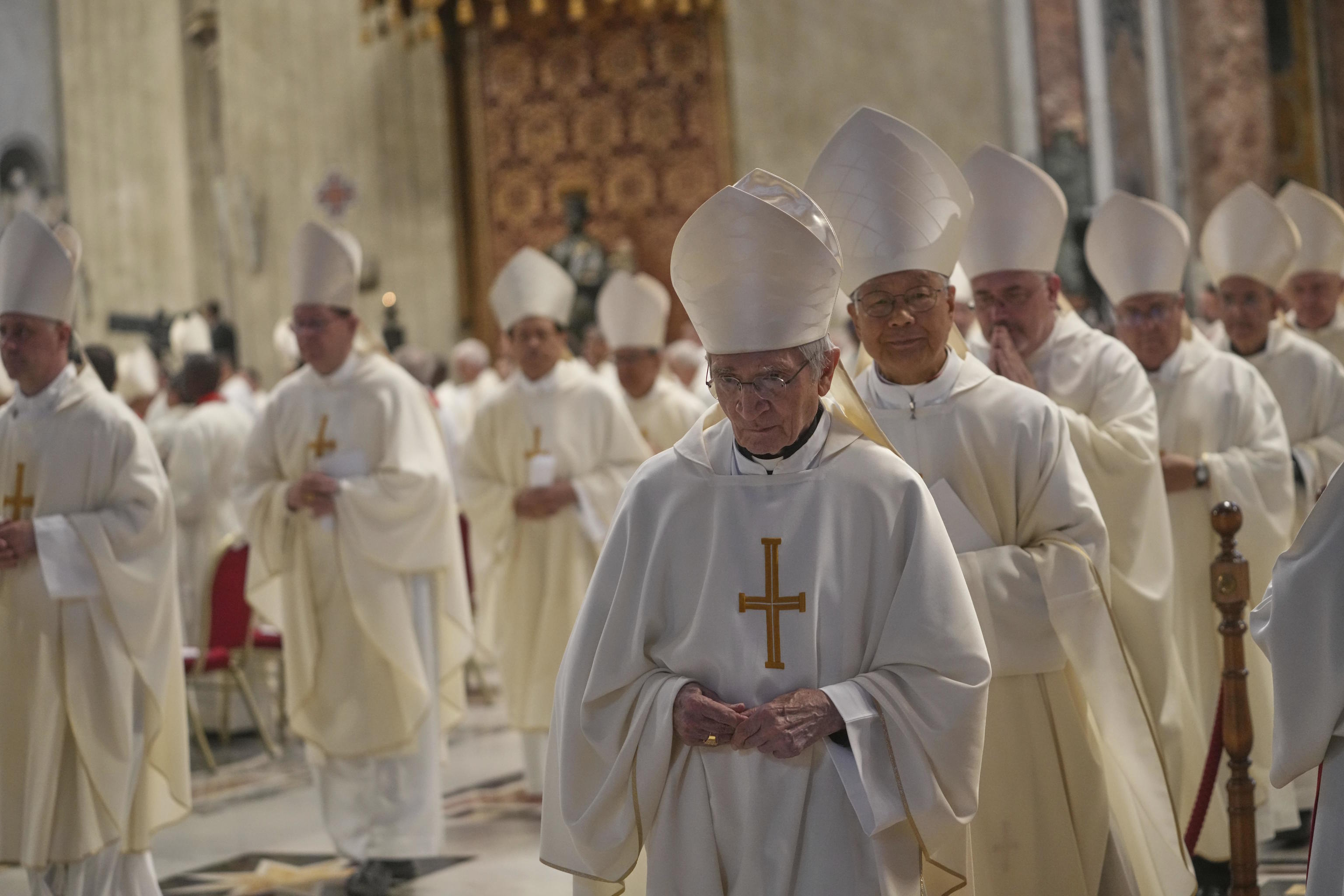The conclave on May 7 will be the most diverse in history, with an influx of cardinals from 71 countries and an increasing presence of representatives from Asia and Africa, the continents where the Church continues to grow, contrasting with the retreat in Europe - in 2013 more than half of the cardinals were European, now they are 38%. There will be 133 cardinals representing 1.4 billion Catholics who, in their own way, have already "voted with their feet in favor of a Pope who follows the path of Francis" (according to veteran cardinal Walter Kasper, who will be excluded for exceeding the age limit of 80 years).
Most Vatican experts agree on one point: the bipolar division between progressives and conservatives (or modernists and traditionalists) prevailing until the election of Bergoglio has given way to a "multipolar" conclave, marked by geographical and cultural differences.
"The elections of the Pontiff have always been marked by strong dualism, but it was easier to classify by groups and tendencies back then," warns Agostino Giovagnoli, historian at the Catholic University of the Sacred Heart, who highlights the presence this time of cross-cutting candidates who break the typical division into two blocs.
Eight out of 10 cardinals participating in the conclave are 'rookies', appointed by Pope Francis in the last 12 years. Twenty of them took their positions in December and have only four months of experience. Many of them did not even know each other until they came face to face these days in Rome, which could add even more uncertainty to the outcome.
The range of candidates is broader than ever, although references to Hungarian Péter Erdö or Guinean Robert Sarah as standard-bearers of the traditionalist sector, as opposed to representatives of the progressive line like German Reinhard Marx, Maltese Mario Grech, or French Jean-Marc Aveline, and of course the Filipino Luis Antonio Tagle, the favorite on social media with the label of "Asian Francis" and the viral video of his "Imagine" karaoke.
"Francis universalized the Church, against the Eurocentric and Italian-centric vision that prevailed until now," argues Italian writer Francesca Ambroggeti, biographer of the Pope "who came from the end of the world." In the countdown to the conclave, Ambroggeti has nevertheless preferred to lean towards a consensus and to eliminate geographical tensions: "It is time for an Italian Pope, I am not alone in this perception".
The Secretary of State of the Vatican Pietro Parolin appears on many lists as the top favorite. Parolin will preside over the conclave, which to some extent makes him both "judge and party". In his favor is the image of relative unity with which the emblematic meeting is being held, including the pre-arranged agreement to sideline Cardinal Angelo Becciu, tainted by a financial scandal.
The President of the Italian Episcopal Conference Matteo Zuppi and the Latin Patriarch of Jerusalem Pierbattista Pizzaballa also stand out among the 17 Italian cardinals, along with the Grand Master of the Order of the Holy Sepulchre, Cardinal Fernando Filoni, who has predicted that there could be "white smoke" even in the first vote: "We have the common responsibility to choose a Pope who ensures the unity of the entire Church."
The chimney from which the smoke will emerge - from the burning of votes after the counts - was installed on the roof of the Sistine Chapel on Friday. All that remains is to prepare the interior of the temple decorated by Michelangelo, with "The Last Judgment" presiding over the first and only vote on May 7, and the four subsequent votes each day until a candidate emerges with a two-thirds majority (89 votes).
The conclave will be preceded by a "Missa pro eligendo Romano Pontifice," officiated by the Dean of the College of Cardinals Giovanni Battista Re, who will not be able to participate in the election due to his advanced age (91 years). In the early afternoon on Wednesday, the "Extra Omnes" ("Everyone Out") will be proclaimed, leaving the cardinals literally isolated from the outside world, even deprived of their mobile phones.
The cardinals' lives will then revolve between confinement in the Sistine Chapel and retreats in the Casa de Santa Marta, the same residence that Francis occupied during his Pontificate. The only time for socializing during the day will be in the Vatican cafeteria, during meals served by the nuns, with strict orders on what the cardinals can eat, with simple dishes from Lazio and Abruzzo to prevent indigestion (lots of minestrone, some spaghetti, and occasionally grilled lamb skewers).
The emeritus cardinal of Sarajevo, Vinko Puljic, previously ruled out due to illness, has expressed his intention to be present at the votes: "I will need help to enter the Sistine Chapel, but I don't think it will be a problem."
